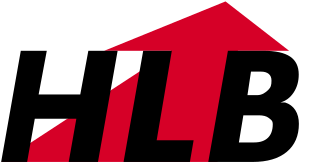
DB Cargo is an international transport and logistics company. It is responsible for all of the rail freight transport activities of the German railway company Deutsche Bahn both inside Germany and on a global level. DB Cargo has a registered office in Mainz and a further administrative office in Frankfurt am Main.

The Deutsche Bahn AG is the national railway company of Germany, and a state-owned enterprise under the control of the German government. Headquartered in the Bahntower in Berlin, it is a joint-stock company (AG) and the largest railway company in the world.

DB Regio AG is a subsidiary of Deutsche Bahn which operates regional and commuter train services in Germany. DB Regio AG, headquartered in Frankfurt am Main. It is a 100% subsidiary of the Deutsche Bahn Group and there part of the DB Regio business segment, which also includes DB Regionnetz Verkehrs GmbH and other independent subsidiaries.

Mannheim Hauptbahnhof is a railway station in Mannheim in the German state of Baden-Württemberg. It is the second largest traffic hub in southwestern Germany behind Stuttgart Hauptbahnhof, with 658 trains a day, including 238 long-distance trains. It is also a key station in the Rhine-Neckar S-Bahn. 100,000 passengers embark, disembark or transfer between trains at the station each day. The station was modernised in 2001. It is classified by Deutsche Bahn as a category 2 station.

DB Station&Service was a subsidiary of Deutsche Bahn, responsible for managing over 5,400 train stations on the German railway network. On 1 January 2024, it merged with DB Netz to form DB InfraGO.
The Rhine-Neckar S-Bahn(S-Bahn RheinNeckar) forms the backbone of the urban rail transport network of the Rhine Neckar Area, including the cities of Mannheim, Heidelberg and Ludwigshafen.
The Nuremberg–Erfurt high-speed railway is a 191-kilometre-long (119 mi) German high-speed railway, between Nuremberg and Erfurt. The line is listed in Germany's federal transport plan as Verkehrsprojekt Deutsche Einheit Nr.8.1 and is a section of the high-speed route between Berlin and Munich and a section of the line connecting Italy and Scandinavia in the European Union's Trans-European Rail network. It consists of an upgraded line between Nuremberg and Ebensfeld and a new line between Ebensfeld and Erfurt. The journey time between Erfurt and Nuremberg will be reduced to approximately one hour and 20 minutes after completion.
DB Netz was a major subsidiary of Deutsche Bahn that owned and operated a majority of the German railway system. It was one of the largest railway infrastructure managers by length and transport volume of its network.

The Frankfurt–Mannheim high-speed railway is a planned German high-speed railway between Frankfurt am Main and Mannheim.

These DB Class V 100 diesel locomotives were produced in the late 1950s by the Deutsche Bundesbahn for non-electrified branch lines as a replacement for steam locomotives. The V 100 class was built in three different variants.

The Regentalbahn is railway company based in Bavaria, and is owned by Ferrovie dello Stato and the Luxembourg infrastructure fund Cube, through the German holding company of Netinera. It runs railway infrastructure, as well as regional and long-distance passenger services in Bavaria and Saxony with links into the Czech Republic, and Germany-wide goods trains.
Südostbayernbahn is one of several regional railway networks in Germany owned by Germany's national railway, Deutsche Bahn AG. Since 2001, the network has included the railway hub of Mühldorf which connects 7 major railway lines from Munich, Rosenheim, Freilassing, Burghausen, Simbach am Inn, Passau and Landshut, forming a star-shaped network of lines called Linienstern Mühldorf. SüdostBayernBahn is subordinated to DB RegioNetz Verkehr and DB RegioNetz Infrastruktur.

TAG Tegernsee Immobilien und Beteiligungs-AG is a property company from Germany with its head office in Hamburg. Until 1998 as Tegernsee-Bahn it operated the railway line from Schaftlach via Gmund to Tegernsee. The company is listed in the share index, MDAX.

DB Services is a subsidiary organisation of Deutsche Bahn AG consisting of six regional divisions which are responsible for the maintenance of the buildings of the railway infrastructure.

The Berlin–Dresden railway is a double track, electrified main line railway in the German states of Berlin, Brandenburg and Saxony, which was originally built and operated by the Berlin-Dresden Railway Company. It runs from Berlin through the southern Teltow countryside and then between Lower Lusatia and Fläming Heath through Elsterwerda and the Großenhainer Pflege countryside to Dresden.

Hessische Landesbahn is a regional transport company owned by the German state of Hesse, based in Frankfurt am Main. It provides bus and rail passenger transport services and, to a lesser extent, rail freight services in Hesse and across the state’s borders through its subsidiaries and affiliates.
The Kassel-based Kurhessenbahn (KHB) is the first of six regional networks to be created by Deutsche Bahn AG as part of its middle class offensive. It forms a unit that is formally split into DB RegioNetz Verkehrs GmbH and DB RegioNetz Infrastruktur GmbH in order to comply with the legal requirements after separation of network and operations.

Ruhland station is located in the town of Ruhland in northwestern Upper Lusatia in the south of the German state of Brandenburg on the Großenhain–Cottbus railway and the Węgliniec–Roßlau railway. The station is a heritage-listed building.
The S-Bahn Berlin GmbH is the operator of the Berlin S-Bahn. The company was founded on 1 January 1995 as a wholly owned subsidiary of Deutsche Bahn.













